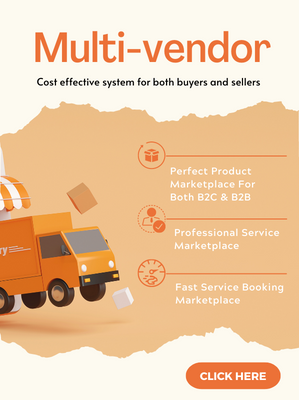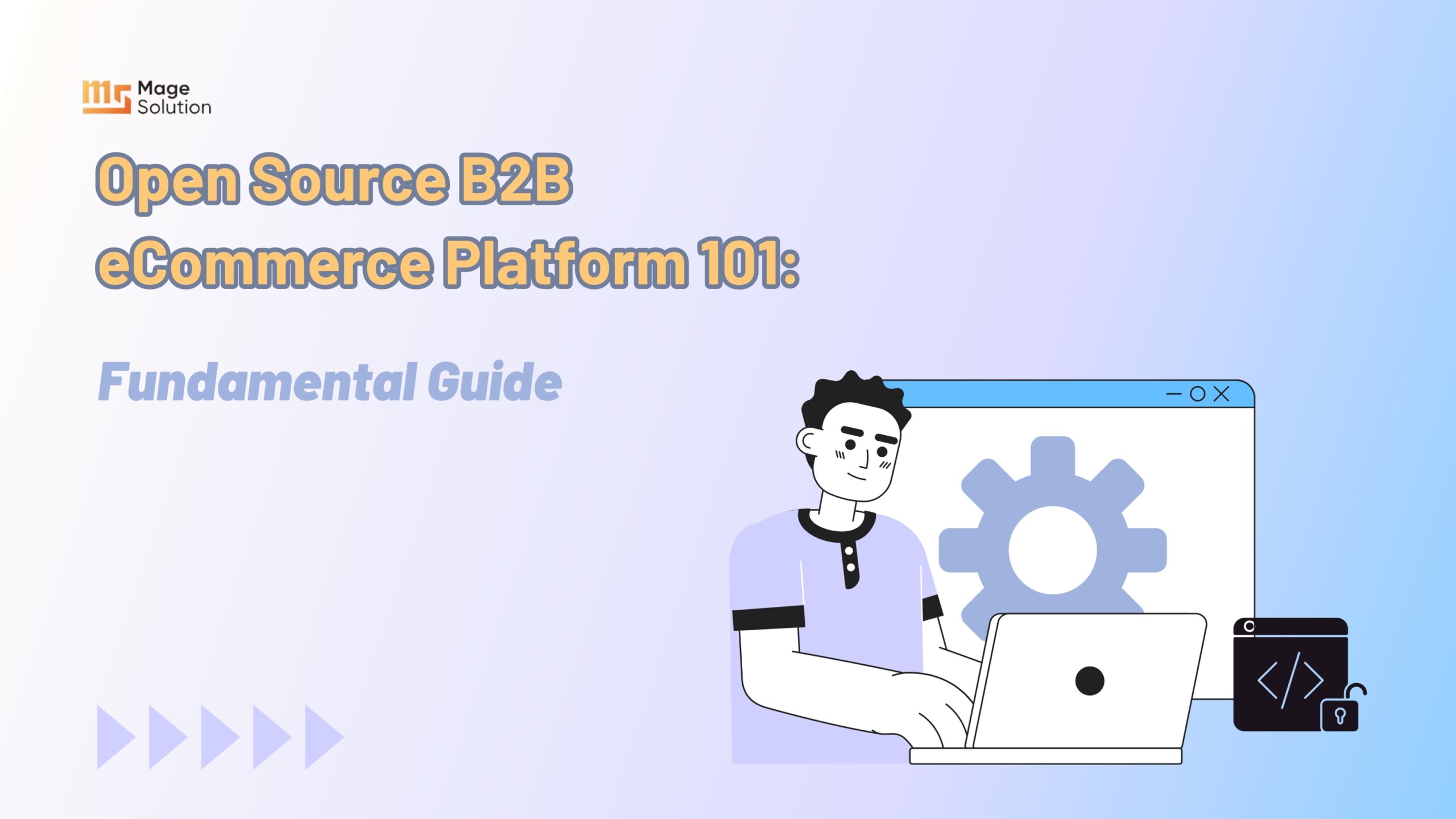
Introduction
Have you ever wondered how your B2B eCommerce business can upgrade with an Open Source Platform?
For this query, probably this statistic will interest you if you own a B2B business model. That is, according to Statista, the global B2B eCommerce market stands at $14.9 trillion, which is 5x the value of the B2C eCommerce market. Whereas, the Open Source B2B eCommerce platform wave is also becoming popular as enterprises desire full control over their E-store as well as versatile and scalable domains.
Want to know more about this solution? In this article, we’ll give you valuable insights about Open source software and how you can make use of this robust ally. Rest assured that you will have an informed decision for the finest eCommerce platform for your B2B venture after going through our findings.
What is an Open Source eCommerce Platform?
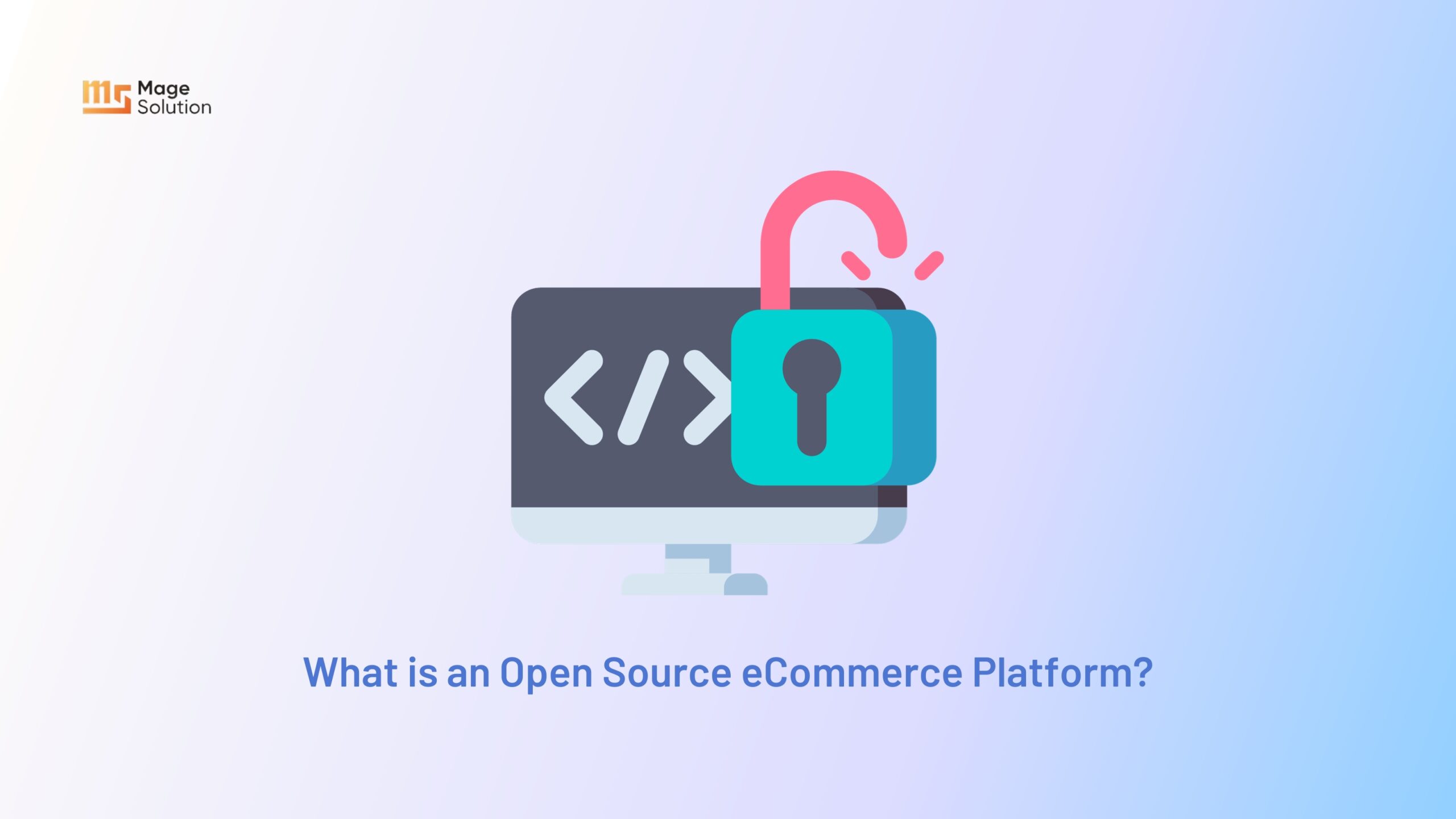
Open source eCommerce platform is a totally welcomed space for anyone to access the source code and modify, develop, and upgrade the domains of their eCommerce websites. Apart from other eCommerce platforms, Open source solution offers high versatility and security for users, which are the main reasons for its widespread among not only individuals but also enterprise-level.
B2B venture caters to the process of exchanging products and services between businesses, so they need a platform that can serve requirements of scalability & complex functions. Well, Open source can hit these desires due to out-of-the-box capabilities. Let’s find out deeper underneath!
Open Source Vs SaaS eCommerce Platform
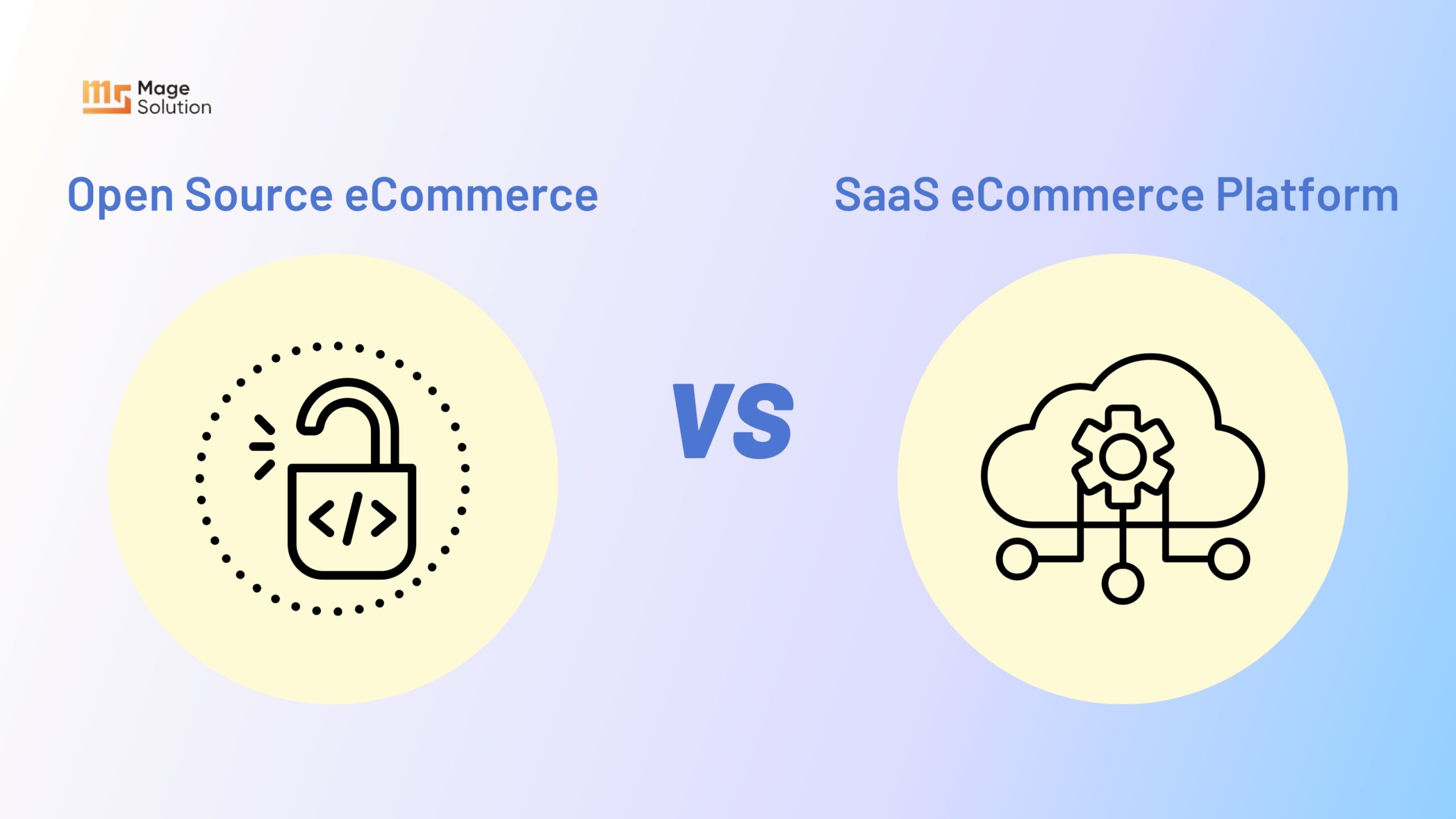
When implementing an eCommerce website, business owners must differentiate between two kinds of platforms: Open source vs SaaS eCommerce.
SaaS (Software as a Service) platforms are commonly executed by a service provider, meaning that businesses can rely on this vendor to develop, adjust, and maintain their domain for a certain time. This solution is ideal for beginners who don’t have certified developers, but in some cases, there might be hurdles to your eCommerce functions, such as limited add-ons and integrations from providers.
Open Source can be deployed by your own business with an array of support from a community of developers. You’ll have complete control over your eCommerce, from hosting, storefront design, backend system, security, and compliance to maintenance. Especially these capabilities can embrace B2B purposes with a large clientele and bulk management. Moreover, it’s feasible to scale up your eCommerce along with complete security not only for enterprises but any kind of business model since open-source software has no restrictions.
Key Features Of Open Source Software

Here is the sum up of critical features that are meaningful of Open source B2B eCommerce platform:
Scalability
One of the most mentioned features is the ability to scale. An Open source B2B eCommerce platform can provide scalable features and resources for each business’s purposes. In addition, your development team can fully integrate solutions from third parties to enhance business operations directly on the source code if this solution is not included in the system. This feature will also reduce the cost of businesses’ dependence on service providers whenever there are changes to the web infrastructure while enhancing flexibility.
Flexibility
For B2B ventures, enterprises will have many separate items that need to be deployed and optimized, such as customer groups, large databases, price lists, dynamic market plans, product configs, etc. This requires a system that is versatile enough for B2B-specific needs. A concise and optimal customer journey is also one of the factors that businesses need to put effort into to compete; hence, Open source would be a great venue to help eCommerce owners implement unique sales strategies.
Community Support
Since it is based on open source code, the global developer community can provide broad backing for your Open source B2B eCommerce platform. These technical experts can on hand to either solve errors or contribute to the development of the eCommerce, which will shorten maintenance time when the system fails.
Security
Security features from Open source for B2B Commerce are always focused on and updated regularly by the system, which can cover security flaws in time and effectively. This asset plays a benefit for enterprises compared to closed sources since you are independent of vendors to handle threats and cyberattacks.
Read More:
Top Best B2B eCommerce platform to scale your B2B business rapidly
Leading Open Source B2B eCommerce Platform
Now you have grasped some key takeaways about Open source B2B eCommerce platform. To better decide on an appropriate platform for your online business, check these 5 Best Open source Solutions below to take your E-store to the next level.
1. Magento (Adobe Commerce)

Formerly known as Magento Open Source, Magento is one of the well-known eCommerce platforms for merchants, hit by 30,000+ users worldwide. After the successful debut of Magento 1, Magento 2 Open-source Edition (Magento Community Edition) was established with an array of innovative functions and capabilities for enterprises to scale up their horizons quickly. Entrepreneurs can extend productivity with third-party CRM, ERP, and PIM directly on the Magento platform.
Magento offers B2B business with:
- API-driven structure
Simplify the way to store management and customize features as you wish. The system allows merchants to integrate add-ons with 4,000 extensions freely
- Available Functions
Magento provides a one-stop solution for store owners to optimize and promote their eCommerce with available features such as SEO, multi-sales-channel, report & analytics tools available in the dashboard.
- Huge community
This open source B2B eCommerce platform includes extensive support from 360,000 Magento experts and developers to assist your site whenever needed.
Read More:
Magento Product Recommendations: Benefits and best for your eCommerce store
2. WooCommerce
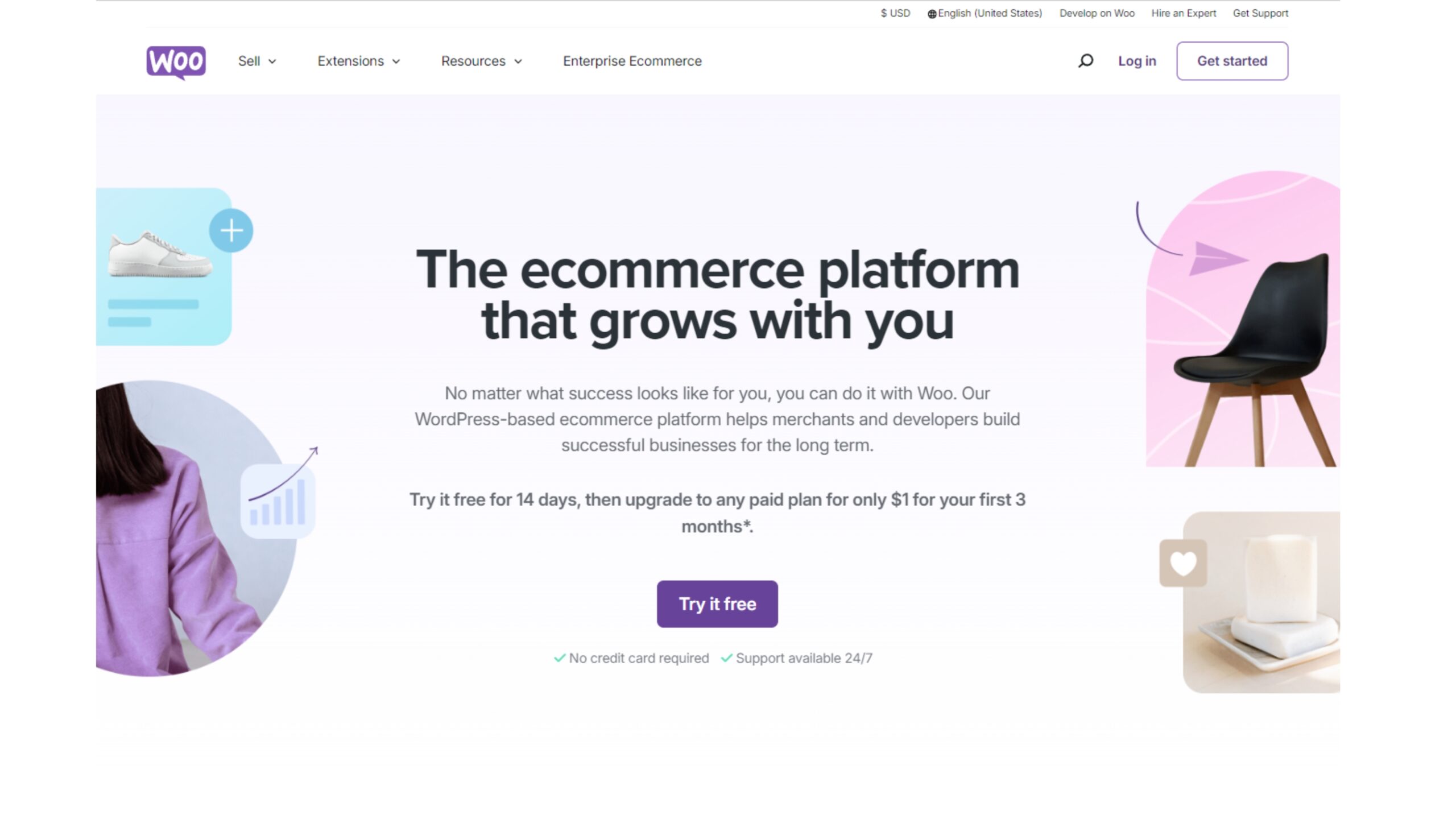
With 123 million downloads recently, WooCommerce is probably among the most popular eCommerce solutions. As a WordPress plugin to help users turn their website into a fully functional online store, WooCommerce contains various customization and compatibilities for any device, especially mobiles.
WooCommerce offers B2B business with:
- Flexibility
It allows merchants to sell anything on the platforms, regardless of physical or digital products & services you have.
- Various payment methods
WooCommerce can accept many kinds of payment gateways, such as checks, cash on delivery, credit cards, mobile banking, etc., with over 140 region-specific gateways
- Strong CMS Headless
This eCommerce approach allows store admins to easily create, manage and adjust content as well as theme design for their online stores due to the strong CMS functions of WordPress
3. OpenCart
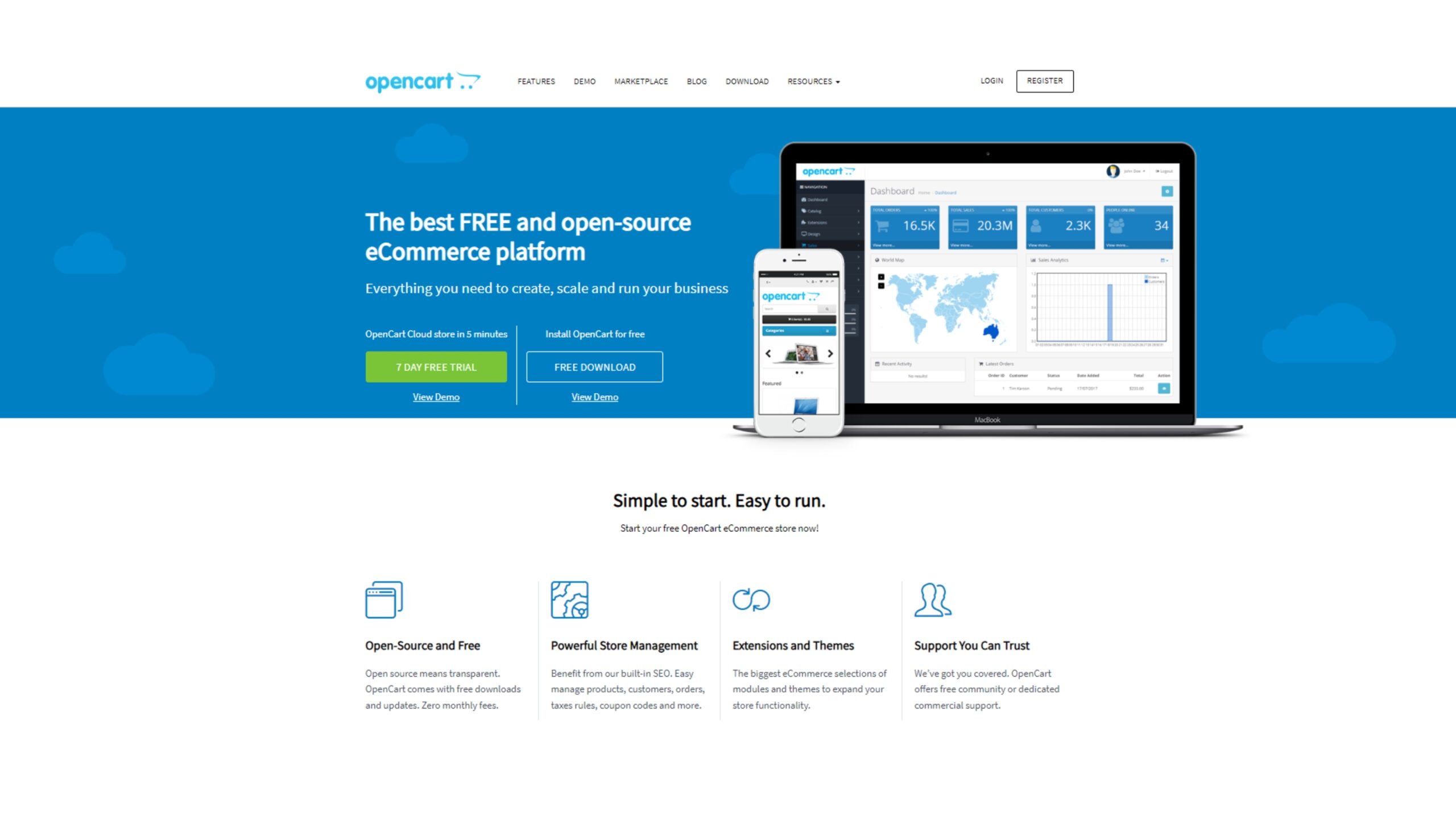
Another easy-to-use platform for B2B enterprises is OpenCart, with over 600,000 trusted users globally. It’s the perfect fit for medium-sized to large-scale businesses who want to maximize orders through eCommerce. OpenCart serves entrepreneurs with all-in-one store operations within a single panel, which saves time and increases productivity.
OpenCart offers B2B business with:
- Customizable
Without too much technical expertise, users can easily adjust within 13,000 themes and eCommerce modules
- Supportive management tools
OpenCart caters to business-related features to better serve sales activities, such as order management, promotional and marketing tools, multi-language and multi-currency compatibility.
4. Drupal

For transactions with large traffic, Drupal is another ideal open source B2B eCommerce platform. Considered a robust PHP-based CMS, Drupal has been downloaded more than 250 million times since its debut in 2001. Moreover, many government websites are built on this platform.
Drupal offers B2B business with:
- Security
Drupal provides a robust security system for domains, which is a good point for eCommerce sites containing huge amounts of data. It’s compliant with various standards and regulations, such as GDPR, HIPAA, PCI, and WCAG.
- Robust CMS
Drupal can offer an extensive content marketing strategy for your eCommerce site, which is easy to access and edit based on your preferences.
5. PrestaShop

PrestaShop is also a potential open-source platform for B2B businesses with 300,000 stores worldwide. This solution offers store owners a bunch of extensions and B2B features to fulfill orders. Due to its popularity, PrestaShop is available in 200 countries and 70 languages.
PrestaShop offers B2B business with:
- Highly customizable
With over 2,400 free and paid templates, users can freely choose and edit the eCommerce storefront and structure based on specific business requirements.
- Global support
PrestaShop users receive 24/7 support directly from the platform’s website; this system also offers multilingual assistance for entrepreneurs.
Conclusion
Wrapping up, each Open source platform will have its own perks and be suitable for many commercial purposes of enterprises. Set strict business goals to choose the most optimal eCommerce platform in terms of features and costs because there are items that require you to pay extra to upgrade the configuration. In some cases, self-deployment of Open source system will face some technical difficulties when the business does not have enough experience, you can consider Open source solutions from certified development companies. These vendors can provide customized eCommerce solutions on Open source platforms for B2B ventures. Contact us to discover more about this service!
